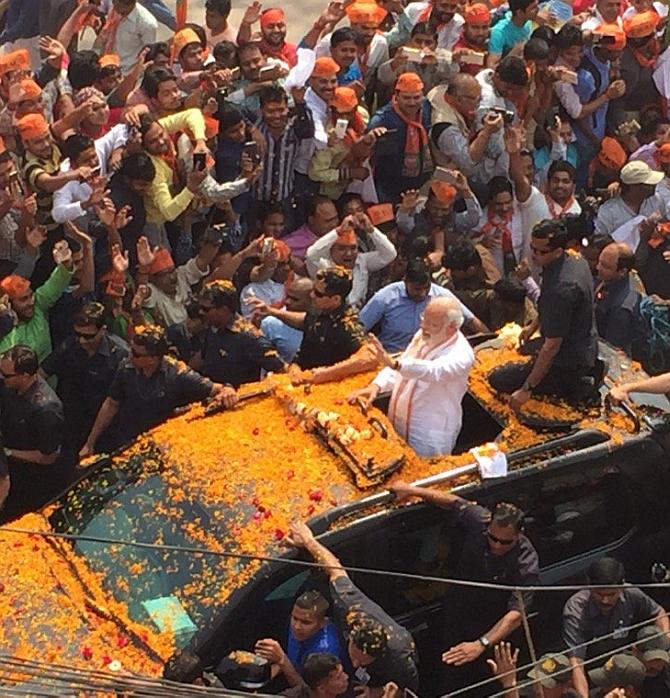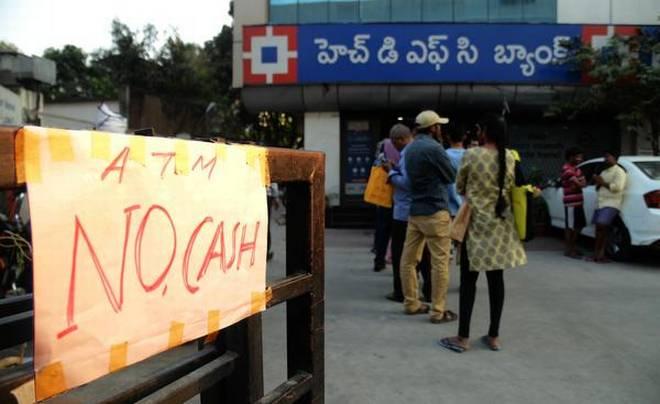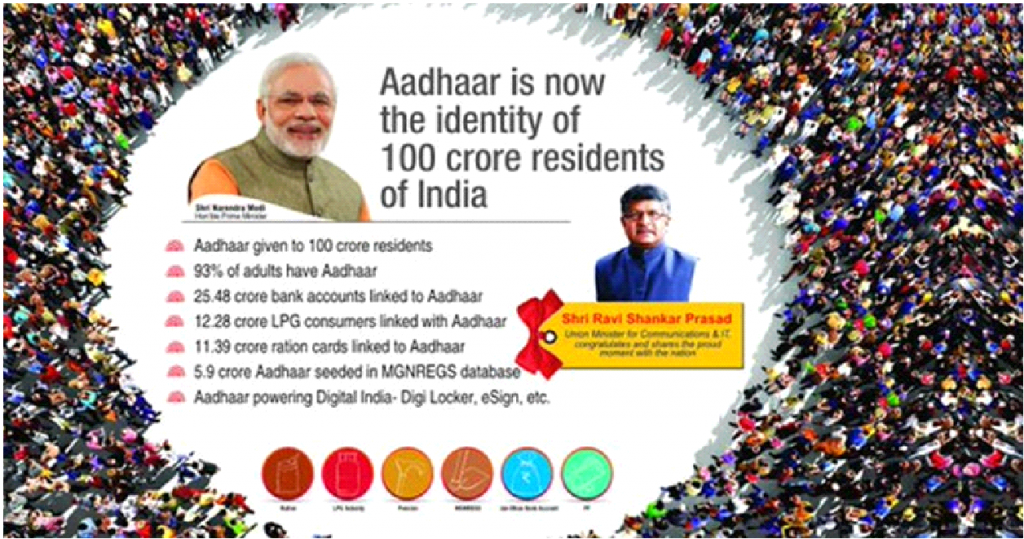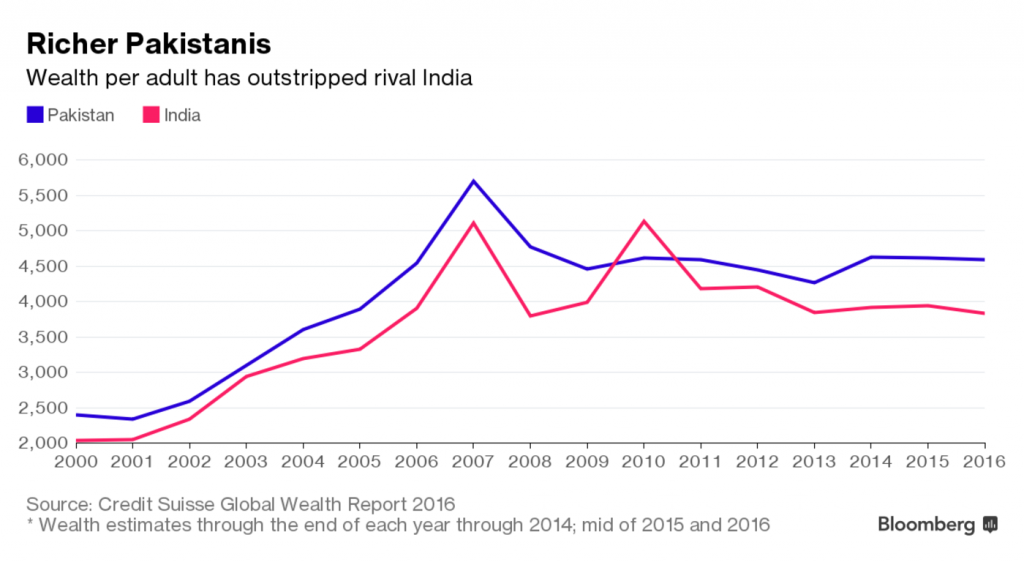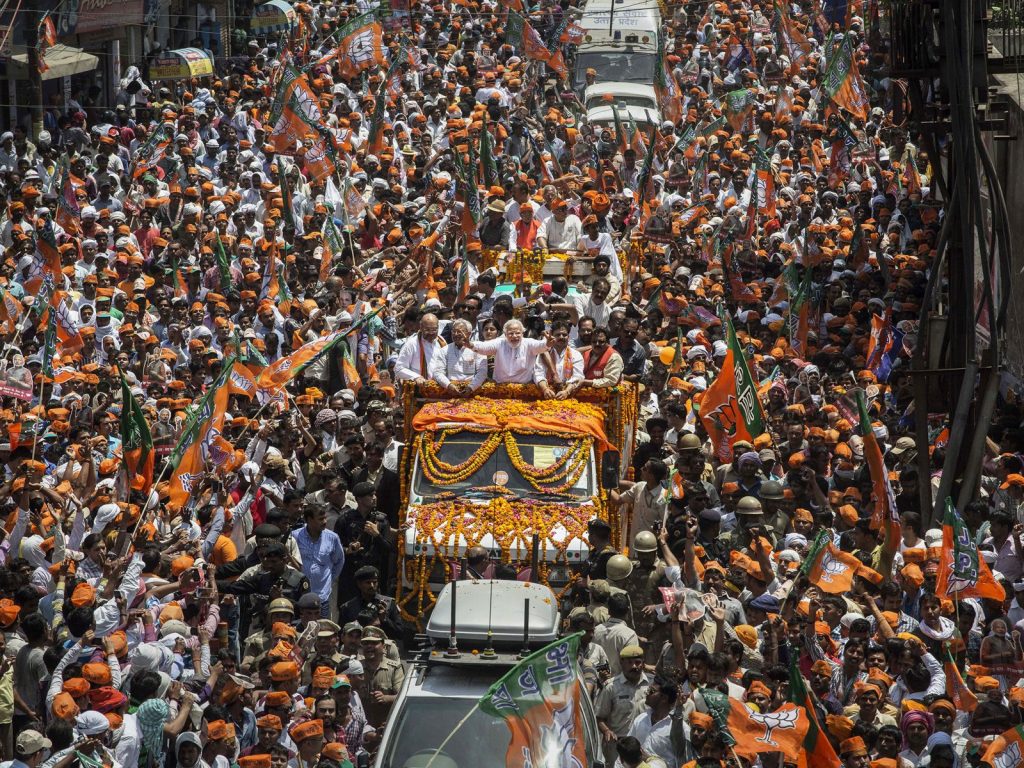India’s Rapid Degradation This is Part XI of a series of articles (the most recent of which is linked here) in which I have provided regular updates on what started as the demonetization of 86% of India’s currency. The story of demonetization and the ensuing developments were merely a vehicle for me to explore Indian institutions, culture and society. Tribal cultures face an inherent contradiction. They create poison from within to grow more collectivist, controlling and tyrannical — members of the populace looks for nannies, and they readily find sociopaths to exploit that need. Their lack of organizational skills, their inability to engage in economic calculation and their irrationality lead to massive internal stresses and the ultimate devolution of such an unnatural society. India finds itself in a situation where it is grasping for more totalitarianism to solve the problems that totalitarianism created. The demonetization exercise was an assertion of India’s underlying tribal and collectivist culture. The Modimobile is making the rounds amid a flower shower. [PT] Photo credit: PTI Photo - Click to enlarge Demonetization Pain Continues Cashless ATMs continue to be the new normal in India.
Topics:
Jayant Bhandari considers the following as important: emerging markets, Featured, newslettersent, On Economy, On Politics
This could be interesting, too:
Nachrichten Ticker - www.finanzen.ch writes Die Performance der Kryptowährungen in KW 9: Das hat sich bei Bitcoin, Ether & Co. getan
Nachrichten Ticker - www.finanzen.ch writes Wer verbirgt sich hinter der Ethereum-Technologie?
Marc Chandler writes March 2025 Monthly
Mark Thornton writes Is Amazon a Union-Busting Leviathan?
India’s Rapid DegradationThis is Part XI of a series of articles (the most recent of which is linked here) in which I have provided regular updates on what started as the demonetization of 86% of India’s currency. The story of demonetization and the ensuing developments were merely a vehicle for me to explore Indian institutions, culture and society. Tribal cultures face an inherent contradiction. They create poison from within to grow more collectivist, controlling and tyrannical — members of the populace looks for nannies, and they readily find sociopaths to exploit that need. Their lack of organizational skills, their inability to engage in economic calculation and their irrationality lead to massive internal stresses and the ultimate devolution of such an unnatural society. India finds itself in a situation where it is grasping for more totalitarianism to solve the problems that totalitarianism created. The demonetization exercise was an assertion of India’s underlying tribal and collectivist culture. |
|
Demonetization Pain ContinuesCashless ATMs continue to be the new normal in India. In a recent conversation, economist Professor Madhusudan Raj mentioned that as many as 70% of the ATMs in his city are still not operational. The situation in villages and small towns is much worse. Banks are often clogged with people. Eventually most people who must have cash will get it, but businesses need easy access to large amounts of their own cash without incurring transaction costs. They continue to face horrendous problems, which are translating into closures, retrenchment of staff, and bankruptcies. The tax authorities are getting increasingly rapacious. According to Professor Madhusudan Raj:
Draconian regulations on the use of cash are increasing. Businesses are in fear of the State. Freedom of speech is rapidly receding, not only because of fear of the government, but also because Indians are becoming increasingly fanatic. Any new cash continues to find its way to the financially powerful, leaving small businessmen and the informal sector reeling in economic trauma. The normal rhythm of the economy has been destroyed. People continue to delay discretionary purchases. The market continues to be slow. Businesses are failing and the poorest are finding employment very difficult to come by. Food prices are still much cheaper than normal, as a result of the economic struggles of poor people. Farmers are facing huge financial pressure in turn. |
|
| It is a vicious cycle in which people who at first lacked access to their own money because of the demonetization now face a situation in which they simply don’t have any work and hence no cash.
As is the case with an irrational tribal society, many members of India’s middle class are utterly lacking in empathy for those who are suffering. Slowly but surely, universal principles assert themselves though, and economic harm is flowing toward them. Alas, they still fail to recognize the chain of causality. |
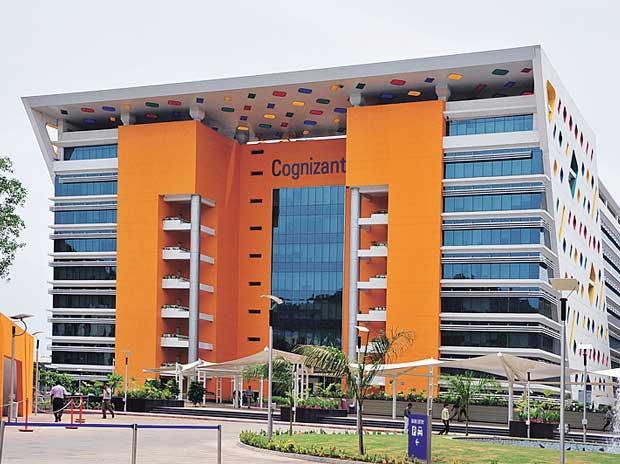 The slow poison of demonetization and populist scams schemes at work: US-listed IT-major Cognizant is expected to slash more than 10,000 jobs. It has around 260,000 employees and around 75 percent of its workforce is based in India. The situation of other IT companies in India is similar. A huge wave of young, mostly unskilled, untrained and uneducated people – about 12 million – join India’s workforce every year, but have little prospects of finding a job. Photo credit: Cognizant - Click to enlarge |
Without Reason, the Only Stable Institution is a Tribe
It has been 70 years since the British left India. In these years, Indians have systemically destroyed what the British left behind by asserting their tribal, superstitious and irrational culture.
It was believed that the separation of legislature, judiciary and executive which the British had created would stay. What was forgotten was that such institutions had evolved in Europe because of the tool of reason. Indians imported all the fruits of western civilization — technology, music, movies, Kim Kardashian, etc. — but completely failed to adopt the European concept of reason.
Without reason, India had to drift back to its tribalism. Today, Indian institutions are hollow shells of what was bequeathed by Britain. The executive, the judiciary and the legislature are indistinguishable from each other. One would find it almost impossible to come across even an educated Indian able to properly explain the difference between these three branches of government.
As Professor Madhusudan Raj notes:
“There is a big cold war going on between the Supreme Court and the Modi government, which is trying to take full control of the courts. Modi’s parliament can now dismiss the appointment of Supreme Court judges in the name of ‘national security’.”
When the British left India, virtually all leaders had been selected and nudged into their positions by them. India was a democracy only in name. Children of these leaders and later on their children had political power.
Jawaharlal Nehru was India’s first Prime Minister. Then it was his daughter’s turn, Indira Gandhi. And then it was the turn of her son Rajiv Gandhi. And then Rajiv’s wife, Sonia Gandhi took over (she ruled using a puppet, Manmohan Singh).
The last vestiges of whatever class Indian politics might have had ended along with the end of Sonia Gandhi’s rule three years ago, and the subsequent inauguration of Narendra Modi. Now raw tribalism is in full force in India.
It is not only India that is affected. European institutions have failed and mutated into entities catering to underlying tribalism in nearly every country in Africa, the Middle East, South Asia and most of Latin America. The nation state, a European institution, is too unnatural for these societies.
India seemed like an exception to the international media. This is because the smartest people of India moved to the US and Indian lobbies leveraged this fact to make India look good – despite the fact that India’s per capita GDP of $1,718 is worse than that of most well-recognized banana republics.
There has indeed been one good thing about India though: freedom of speech survived among a minority. This happened not because of any inherent goodness, but because India is an extremely diverse place, perhaps the most unnatural country.
The infighting and stresses it generated have failed to given Indians a collective identity. This cirfcumstance allowed a minority to speak its mind. Alas, even that is now coming to an end. Hindu nationalism, a.k.a. Hindutava, is rapidly weaving Indians into a tribal collective.
But the Media and the World Bank are in AweThe international media and the World Bank, find inspiration in what is happening in India. India has recently released a GDP growth figure of 7%. India’s new identity card scheme, Aadhaar, is believed to be a massive success, so much so that the World Bank is urging the world to copy it. The Indian stock market has risen nicely over the last few weeks. So has the Indian rupee. Moreover, Narendra Modi’s party has just celebrated massive victories in recently held provincial elections. What is not to like about India? In my last update, I explained why the 7% growth figure is a mere paper figure not reflected by reality on the ground. India’s economy very likely suffered huge negative growth last quarter. An increase in revenues was only experienced by politicians and bureaucrats, who collected larger bribes than ever. The common man no longer has the courage to haggle over bribes these days. He pays whatever he is asked to pay. Ironically, Modi gave the common man and particularly so-called educated people in India huge hopes, and not unlike people in North Korea, they are increasingly nationalistic and proud. 93% of the population have indeed signed up for the Aadhaar ID. It is not compulsory to have one, but the Indian government has made it impossible not to have one. People who don’t have these cards are simply opening themselves up to getting exploited in new ways. |
|
| It is worth visiting banks when so-called pensions — paltry sums of a few dollars — are coming due for the old and infirm. They grovel and sit for hours outside bank branches, consistently humiliated by everyone, from guards to managers. In this electronic age their pension often goes missing. Then they must run from pillar to post to get what they have been promised.
India’s GDP per capita is $1,718, making it poorer than Africa. You can enforce a perfect tax regime or a perfect ID system (neither of which is actually possible) on such a chaotic society, but you have to have productivity to make use of increased taxes and a better ID system. Indians are mostly unskilled, uneducated, and untrained, in short, largely unfit for the modern economy. Any rational ruler would have focused on creating competence among Indians, without which any hopes connected to increased taxation will fail. Moreover, the situation can easily become a major humanitarian crisis in the coming age of robots. Many people will lose their ID cards soon — as perhaps more than 80% of Indians do not live in proper housing. They lack safe storage to preserve such cards. Moreover, only about 10% to 15% of the population are “benefiting” (by getting subsidized food, gas, etc.) from the cards. Could it be that most of these beneficiaries are members of the middle class? India’s stock market has gone up nicely over the last quarter. The stock market is not necessarily a yardstick measuring the performance of the economy. In fact, it often goes up when long-term returns from economic activity are expected to fall. The Indian government has forced Indians to move their money from the informal sector to the formal, in order to help their corporate cronies and increase tax collection. Alas, India’s growth is generated by its informal sector. Modi has seriously harmed this sector through the demonetization exercise. Eventually, the formal sector, which has been sitting comfortably while it was subsidized by the informal sector, will suffer as well. Twelve million people who join the workforce every year face a horrendous future in a country where failing to find a job is routine. Indian demographics are a massive liability. And crime is increasing. |
Sensex Index Daily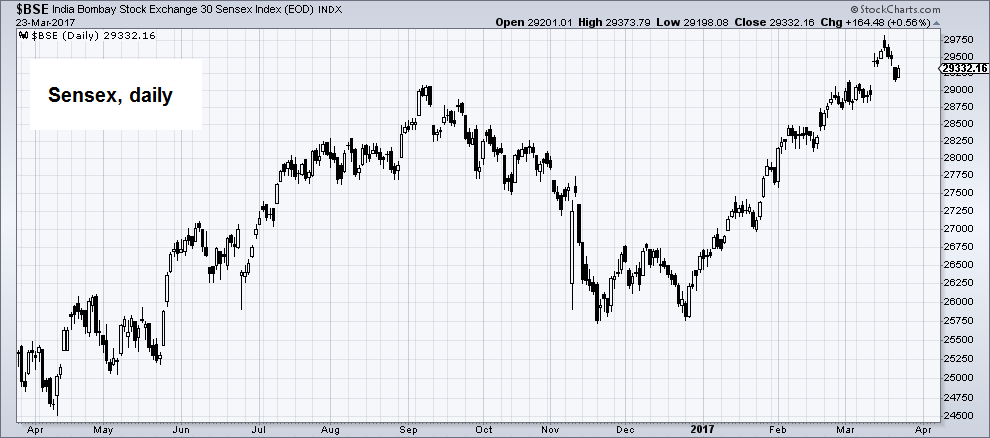 Sensex index, daily. If you wonder why stock markets are not considered good yardsticks of economic performance, ponder the IBC General Index in Caracas for a moment, in local currency terms the best performing stock market in the world over the past 15 years. It is actually close to a record high, similar to the Sensex. Venezuela’s economy is doing so well, that hungry people are hunting for rats in the streets of Caracas. [PT] - Click to enlarge |
It Keeps Getting Worse Ever FasterI would not have written any more updates on the demonetization crisis, for a lot has already been said. But recently Modi’s party won elections in the province of Uttar Pradesh (UP). UP is the most populous province of India with 200 million inhabitants, and it has historically decided who comes to power in the federal government. It has per capita GDP of $730, fairly close to that of Afghanistan. Professor Madhusudan Raj asserts that Modi’s BJP won primarily due to the anti-incumbency vote. If anti-incumbency stays in fashion, Modi might be in trouble in two years time when the next federal elections come. What might he do to avoid the inevitable? In caste- and class-ridden, backward and illiterate UP, demagogy is much more important than economic growth plans. |
|
| Modi has appointed Yogi Adityanath as the Chief Minister (CM) of UP. Adityanath has “given up worldly affairs” to be a “sanyasi”. What distinguishes Adityanath is his extreme hatred towards Muslims. He has exhorted Hindu men to convert 100 Muslim girls to Hinduism for each Hindu who converts to Islam.
He wants to make India a pure Hindu nation. Several years ago he started a religious association, Hindu Yuva Vahini, an organization mainly playing host to a criminally-minded unemployed rabble. |
Yogi Adityanath asks for unity among Hindus and a religious war |
| With the appointment of Yogi Adityanath as the CM of UP, talk about development is off the table. The issue is now how to make India a non-secular, Hindu nation. |
Yogi Adityanath suggests killing 100 Muslims for each Hindu killed [a really nice guy – PT] |
Conclusion – Maybe Give that Wall a Chance…India’s rapid descent continues. It is hard to dispute that India is well on its way to be the next Pakistan. Or perhaps India is already worse in some ways: One of the largest illegal migrant groups in the US is from India. In this modern era, India’s crisis will not stay limited to India. As is the case with those from other eastern religions and societies, once they arrive, Indians vote to mirror what they left behind in their home country, often unknowingly — as the virus of totalitarianism is deeply ingrained in the culture of irrationality. |
Richer Pakistanis Wealth per adult has outstripped rival India |
| A wall might not be the answer, but Trump isn’t all that wrong.
Charts by: StockCharts, Bloomberg Chart captions and image captions by PT where indicated |
Tags: Featured,newslettersent,On Economy,On Politics

